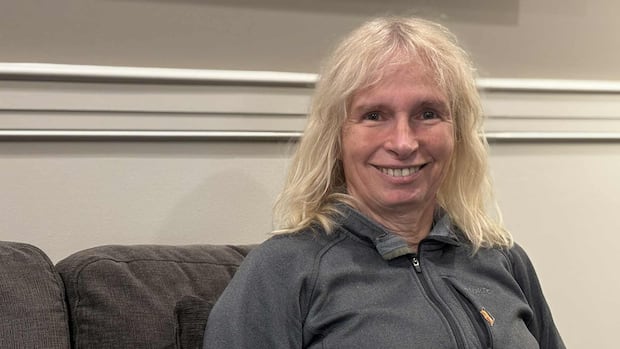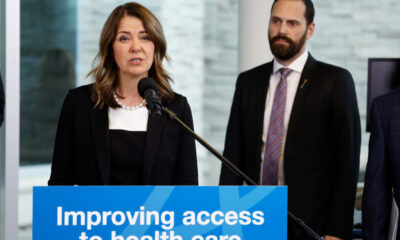Science
Canadian Researcher Rebuilds Study on Trans Athletes After U.S. Setback

A Canadian researcher has returned to her home country after a significant setback in her study of transgender athletes in the United States. Joanna Harper, known for her two decades of research on the impact of hormone therapy on athletic performance, faced funding challenges that halted her project in early 2024.
After relocating to Portland, Oregon, Harper began investigating the fitness performance levels of trans youth before and after they started puberty blockers or hormone therapy. This ambitious project was intended to span five years but concluded prematurely after just 18 months. Harper attributes the abrupt end of her research to the political climate surrounding transgender rights, particularly following the election of Donald Trump.
“Once Trump got elected, it was understood by all of us that many things concerning trans people in the U.S. were in danger,” Harper explained. She noted that the atmosphere became increasingly hostile towards the transgender community, which contributed to the loss of funding for her research.
During his presidency, Trump signed several executive orders affecting transgender rights, including one that limits gender recognition on federal documents and another that prohibits individuals assigned male at birth from competing in women’s sports. The U.S. government also implemented significant budget cuts to scientific research, further complicating Harper’s project, which was a collaboration involving four American institutions and funded by the athletic brand Nike.
In the spring of 2024, Harper reported that Nike cut funding for her project, leading to its termination. While the company did not directly withdraw support, Harper believes the broader political pressures influenced their decision. “I certainly don’t blame Nike. I blame the people who put political pressure on Nike,” she stated.
Returning to Canada for New Opportunities
Unable to continue her research in the U.S., Harper returned to Canada and accepted a position at her alma mater, Western University in London, Ontario. As an adjunct professor, she is eager to resume her studies on trans athletes. “There are all kinds of scientists who suddenly found out that they no longer have positions or funding, and they have headed for the exit. In general, it’s a really disappointing turn that this has happened in the United States,” Harper remarked.
The provost and vice-president of academics at Western University, Florentine Strzelczyk, confirmed the institution’s commitment to recruiting international talent. In response to the funding cuts in the U.S., the university has initiated a new program aimed at supporting post-doctoral students associated with American universities, offering up to $160,000 over four years.
Future Research on Trans Athletes
Harper’s interest in studying trans athletes was sparked by her own transition in 2004, during which she observed a notable change in her running speed. “I was running 12 percent slower, and I’m a pretty serious runner,” she said, adding that she lost her male advantage within nine months of starting hormone therapy.
Although the previous project yielded insufficient data, Harper is determined to initiate a new study focusing on local trans athletes and their evolving athletic abilities. While the details of her upcoming research are still being finalized, she is seeking funding to support her efforts. “I don’t know what the future holds for me, but certainly no trans research will be done in the U.S. until at least 2029, and even then, the future is somewhat fraught,” she concluded.
As Harper embarks on this new chapter, her commitment to understanding and advocating for the transgender community remains steadfast, despite the challenges she has faced.
-

 Politics3 weeks ago
Politics3 weeks agoSecwepemc First Nation Seeks Aboriginal Title Over Kamloops Area
-

 World4 months ago
World4 months agoScientists Unearth Ancient Antarctic Ice to Unlock Climate Secrets
-

 Entertainment5 months ago
Entertainment5 months agoTrump and McCormick to Announce $70 Billion Energy Investments
-

 Lifestyle4 months ago
Lifestyle4 months agoTransLink Launches Food Truck Program to Boost Revenue in Vancouver
-

 Science5 months ago
Science5 months agoFour Astronauts Return to Earth After International Space Station Mission
-

 Technology3 months ago
Technology3 months agoApple Notes Enhances Functionality with Markdown Support in macOS 26
-

 Top Stories2 months ago
Top Stories2 months agoUrgent Update: Fatal Crash on Highway 99 Claims Life of Pitt Meadows Man
-

 Lifestyle3 months ago
Lifestyle3 months agoManitoba’s Burger Champion Shines Again Amid Dining Innovations
-

 Politics4 months ago
Politics4 months agoUkrainian Tennis Star Elina Svitolina Faces Death Threats Online
-

 Sports5 months ago
Sports5 months agoSearch Underway for Missing Hunter Amid Hokkaido Bear Emergency
-

 Politics4 months ago
Politics4 months agoCarney Engages First Nations Leaders at Development Law Summit
-

 Technology5 months ago
Technology5 months agoFrosthaven Launches Early Access on July 31, 2025





















